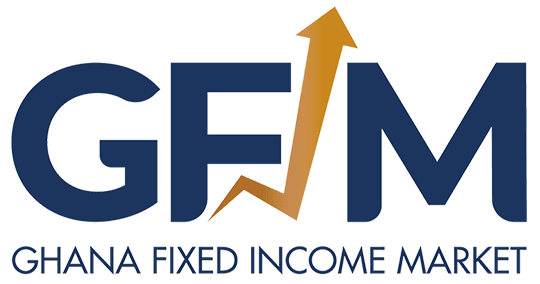Ghana’s fixed income market recorded GH¢744.07 million in trading activity across 986 transactions on Wednesday, October 22, 2025, with government securities dominating volumes while corporate debt participation remained minimal.
New Government of Ghana notes and bonds attracted the strongest investor appetite, generating GH¢150.29 million through 44 separate trades. The most actively traded instrument was a February 2029 maturity bond yielding 15.97 percent, which alone accounted for GH¢63.54 million in volume through just four transactions. This concentration suggests large institutional buyers rather than retail participation, with investors apparently willing to lock in double-digit returns despite the government’s elevated borrowing costs.
Treasury bills maintained their customary position as the market’s workhorse, processing GH¢285.92 million across 920 individual transactions. The high transaction count relative to value indicates broad participation from both institutional and retail investors across the standard 91 day, 182 day, and 364 day tenors. A January 2026 maturity bill drew particular attention, recording GH¢37.55 million through 127 trades.
Bank of Ghana bills contributed substantial volume with GH¢205.55 million traded across just four transactions. One instrument alone generated GH¢203.85 million, suggesting a single large institutional deal rather than widespread market participation. These central bank instruments provide alternatives to treasury bills for investors seeking government credit quality with slightly different tenor structures.
Sell and buyback transactions, which function as short term liquidity arrangements using bonds as collateral, recorded GH¢99.62 million through 14 trades. A February 2030 maturity bond with an 8.80 percent coupon dominated this segment at GH¢98.07 million across 10 transactions, yielding 13.46 percent. The spread between the coupon rate and repo yield illustrates how current market rates have risen significantly above the levels at which older bonds were originally issued.
Corporate bonds managed minimal traction with just GH¢2.59 million changing hands in a single transaction. A Cocoa Marketing Board bond maturing August 2027 attracted that lone trade, continuing the pattern where Ghana’s state owned commodity board remains the only corporate issuer generating any meaningful secondary market interest. Other corporate names including Letshego Ghana, Bayport Savings and Loans, Izwe Savings and Loans, Kasapreko, and Quantum recorded zero activity.
Old Government of Ghana notes and bonds, many carrying coupon rates between 19 and 35 percent from Ghana’s high inflation era, saw only GH¢99,600 traded across three transactions. These legacy securities have largely been superseded by new instruments following the country’s debt restructuring program.
The collateralized repo and Global Master Repurchase Agreement segments recorded zero activity, continuing a pattern that suggests these sophisticated financing tools haven’t achieved traction in Ghana’s fixed income infrastructure despite their prevalence in more developed markets.
Wednesday’s yield environment continued reflecting the elevated rate structure that has characterized Ghana’s fixed income market throughout 2025. Government bonds traded with yields ranging from roughly 13.46 percent to 23.47 percent depending on maturity and security vintage, offering attractive real returns as inflation continues moderating from previous highs.
The concentration of over GH¢640 million in government securities out of total GH¢744 million volume underscores how dependent Ghana’s fixed income market remains on sovereign issuance. For portfolio managers, the calculus remains straightforward: government bonds offer double digit yields with sovereign backing, treasury bills provide liquid short term parking for cash, and Bank of Ghana bills add tenor flexibility.
Corporate bonds, meanwhile, struggle to compete unless yields reach levels that raise questions about whether debt financing makes economic sense for private sector issuers. The result is a fixed income market that functions effectively for government securities trading but offers limited diversification options for investors seeking exposure beyond sovereign credit.
Wednesday’s robust trading volumes and broad transaction count suggest institutional appetite for Ghanaian fixed income remains healthy despite fiscal challenges. Banks, pension funds, and insurance companies need yield generating assets, and government paper fills that requirement while meeting regulatory preferences for sovereign exposure. Whether this pattern evolves to encompass more vibrant corporate bond trading depends partly on factors beyond the trading platform itself, including credit rating infrastructure, standardized documentation, and investor protection frameworks that encourage broader participation.
Source: newsghana.com.gh











